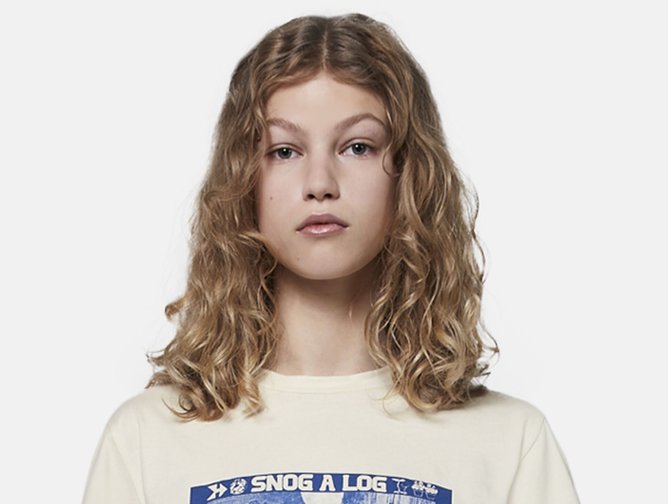Stella McCartney: forging the future of sustainable fashion

Next time you are reaching for that new pair of jeans that you probably don’t really need, think on this – the fashion industry accounts for around 8% of global greenhouse gas emissions, and that is set to grow along with increased population and levels of consumption.
While the catwalk may be in the doghouse, there are many in the fashion industry taking a stand – with Stella McCartney arguably the loudest and most influential voice.
The daughter of Beatle Paul McCartney and photographer, animal rights campaigner, and meat-free pioneer Linda McCartney (nee Eastman), Stella McCartney has become a beacon for sustainability and conscious fashion since launching her own label in 2001, in conjunction with Gucci.
The only major fashion house in the industry to have had ethics at its heart since day one, the brand is the first luxury fashion brand to never use animal leather, feathers, fur or skins – and adopted sustainability principles in 2006.
Those principles have evolved, with Stella McCartney taking the industry lead on cruelty-free alternative materials, process innovation, circular ambitions, regenerative practices, and community wellbeing.
As proven in the company’s just-released Impact Report 2023, in which the brand explains how its focus on sustainability remains the same with innovation continuing to be the “driving force behind where we position ourselves as a brand that is impacting and influencing the broader industry”.
Stella McCartney aiming for net zero by 2040
This is exactly why Stella McCartney attends COPs – the only brand from the fashion industry to attend COP26 in Glasgow and an active participant in COP28, where she is strongly advocating for industry change.
Not surprising given not just the DNA of Stella McCartney’s eponymous brand – but in her role as a special adviser on sustainability to LVMH CEO Bernard Arnault.
Here in Dubai, she is advocating for policy and regulatory change to incentivise sustainable business and the decarbonisation of the fashion industry, human and animal welfare, and building efforts to support and scale investment in materials innovation.
McCartney wants the fast-fashion and the luxury-fashion markets to completely change the way they function, and for new, more sustainable materials to be embraced on a much bigger scale.
“I’m really trying to shine a light on how harmful the fashion industry is, at times people that work in it and to the animals that are killed for it,” she said at COP28 during an interview with Bloomberg TV.
“I’m here to provide sustainable solutions and to also encourage leaders to wake up, change policy and bring in legislation.”
This is not all show – the brand is also taking action to practice what it preaches, such as aiming to be net zero by 2040. This includes reducing Scope 1 and 2 greenhouse gas emissions by 75% by 2030 and cutting supply chain emissions by 46.2% by 2030.
Among significant achievements made in 2022, according to its latest Impact Report, the company reduced operational emissions by 76%, increased its sites running on renewable energy to 68% – and reduced Scope 3 emissions by 22% – putting the brand on track to meet its 2030 target.
As a force for fashion industry change, Stella McCartney centres on collaboration and innovation – and more than ever, is passionate about showing how – with the right technology and partnerships – fashion can be fast in its move to more sustainable measures.
Tapping technology to innovate in sustainable fashion
McCartney is proving just this with the Collab SOS Fund – a US$200 million LVMH-backed fund for climate solutions McCartney co-founded as a way to back pioneering startups and cutting-edge technologies in developing climate solutions.
More than just a fund, it is a call to action, and an urgent one – to support, back and embrace the pioneering tech solutions from companies that are re-imagining a regenerative, sustainable economy.
Like AlgiKnit, which is manufacturing yarn from kelp, an abundant and natural resource, or Natural Fiber Welding, which is selling the only 100% plastic-free leather-alternative on the market.
Five of those startups are present at COP28 at Stella McCartney’s Sustainable Market, a concept launched at the brand’s summer 2024 runway show during Paris Fashion Week designed to inspire and educate on the possibilities of current cutting-edge or soon-to-be-available technologies.
She is showcasing 15 bio- and plant-based alternatives to plastic, animal leather, and fur.
One of those is a grape-based alternative to animal leather, produced in partnership with champagne brand Veuve Clicquot.
Around 80% of the Stella McCartney x Veuve Clicquot leather alternative is made of vegetal, renewable and recycled raw elements – by-product from the Champagne Maison’s historic vineyards grown regeneratively on land bought 200 years ago. Grape-based alternatives to leather typically have a 40% lower impact on global warming.
Innovating in alternative materials is a central part of the brand DNA. A decade ago, they introduced APINAT, a biodegradable rubber into its footwear, and Eco Alter-Nappa, a smooth vegan alternative to animal leather.
And since 2017, have been working with mycelium startup Bolt Threads, launching the Frayme Mylo Bag, the world's first luxury bag made from mycelium, a mushroom-based leather alternative.
And now, Stella McCartney has announced strategic partnerships with two more companies – Mango Materials and Air Carbon – to develop new innovations and materials from GHG emissions.
Among other technologies McCartney is working with (and showcasing at COP28) is a technology using enzymes to break down plastic waste and turn it into recyclable material.
Recycling is a key strategy in the brand’s sustainability story – and in 2022, the company worked and launched its first completely circular product, a mono material parka with Econyl, meaning 100% regenerated nylon from pre- and post-consumer waste like fishing nets and industrial plastic
“Out of US$500 billion worth of waste in the fast fashion industry, there are business opportunities, such as converting waste into usable material,” McCartney said.
And now Stella McCartney has collaborated with Protein Evolution on another parka – this time, marking th world’s first garment crafted from the company’s biologically recycled, “infinitely recyclable” polyester.
Biopure technology uses AI-designed enzymes to break down polyester waste into raw materials, creating a polyester indistinguishable from petroleum-derived peers.
Protein Evolution used rigid packaging and industrial textile waste to create textile-grade polyester, which was then spun into yarn and woven into new fabric by the team at Stella McCartney.

Supply chain emissions – traceability technology
On track to reach its commitment to reducing Scope 3 GHG emissions by 46.2% by 2030, Stella McCartney has announced among its next steps in 2024, plans to improve supply chain transparency and product traceability.
They will centralise and standardise all information the collection from suppliers, including risk assessments and audits, under the SMC Sustainability hub.
Since 2022, the luxury brand has been working alongside UNECE and its regenerative cotton supplier SOKTAS in Turkey to trace a garment throughout its supply chain.
The UNECE blockchain technology pilot aimed to prove that the brand’s Snog-a-Log Regenerative Cotton T-Shirt has been produced using regenerative cotton, which supports biodiversity preservation, increases ecosystem resilience and promotes and utilise the safe use of chemicals.
Stella McCartney is now launching a second-use case for a knitted shirt, also crafted from regenerative cotton and partnering with another supplier to trace the supply chain of its wool.
This is part of the brand’s Sustainability Pledge initiative exploring the use of innovative technologies – like satellite imagery and environmental DNA – to substantiate the supplier’s sustainability credentials, including no tillage, crop rotation, biodiversity monitoring and carbon capture rate measuring methods.
“By implementing UNECE blockchain traceability technology into our regenerative cotton supply chain, we are proud to pioneer and transparent path forwards and hope that other fashion houses will join us.”

Stella McCartney’s new announcements and commitments
- Renewed commitments to innovation and fossil fuel reduction across materials and processes throughout the production, sale and end of life of all Stella McCartney products
- Strategic partnerships with Mango Materials and Air Carbon to develop new innovations and materials from GHG emissions
- Upcoming 2024 Circular Design Guide to openly share sustainable circular design and materials knowledge, principles and guidelines across industries
- Launching a new innovation campaign with PETA to emphasise alternative and innovative materials for leathers, furs, feathers and fills
To find out more about the impact of Stella McCartney, read its latest Impact Report 2023.






